Are you desired to
uninstall FileCure due to the error messages frequently show up?
Are you confused
that you try to delete FileCure with Control Panel but it is not there?
Are you disappointed
that you could not get rid of FileCure because there is no Uninstall option?
However, if you
would like to get rid of the program, you could follow the FileCure removal
guides step by step in this article.
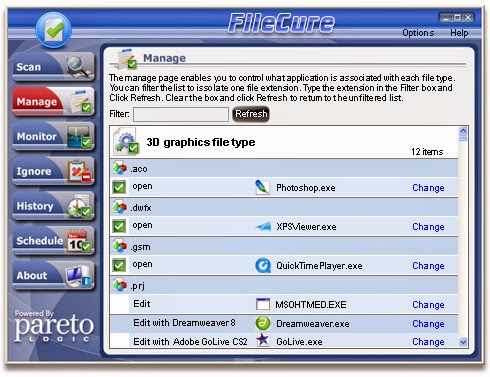
There are 2 useful program removal guides to delete FileCure from your PC.
Tips 1: Delete FileCure through Windows
Control Panel by manual
Tips 1: How to manually remove FileCure through Windows Control Panel?
As usual, you
prefer to uninstall programs by using Windows Control Panel. And you could
follow the removal instructions below:
Restart your
computer and press F8 key on your
keyboard. This will open up the Advanced Boot Options screen, in Windows 7 or
Win 8, or the Windows Advanced Options Menu in Windows XP. Using the arrow keys
on your keyboard, highlight the option labeled Safe Mode with Networking. Once it is highlighted, click on the Enter key on your keyboard.

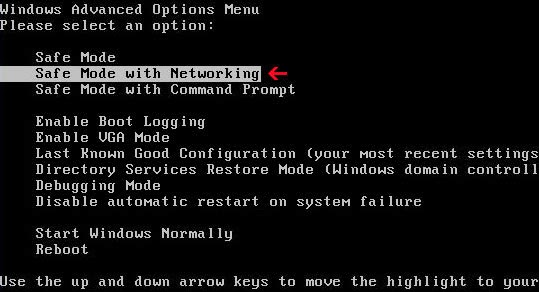
Step 1: End related processes of FileCure

Guide: Open task manager by pressing Alt+Ctrl+Del keys at the same time.
Another way is to click on the Start button and choose Run option, then type taskmgr into and press OK.

Disable all the
running processes about FileCure
Next: show hidden
files and folders and delete all the following files.
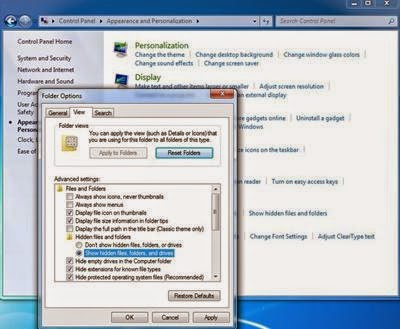
Guide: click the Start button and
choose Control Panel, clicking
Appearance and Personalization, to find Folder Options then double-click on it.
In the pop-up dialog box, click the View tab and uncheck Hide protected
operating system files (Recommended).
Delete all the
following files related to FileCure
%AppData%\.exe
%CommonAppData%\.exe
C:\Windows\Temp\.exe
%temp%\.exe
C:\Program Files\
Step 2: open Registry Editor to delete all invalid registries entries as
below

Guide: open Registry Editor by
pressing Window+R keys
together.(another way is clicking on the Start button and choosing Run option,
then typing into Regedit and
pressing Enter. )
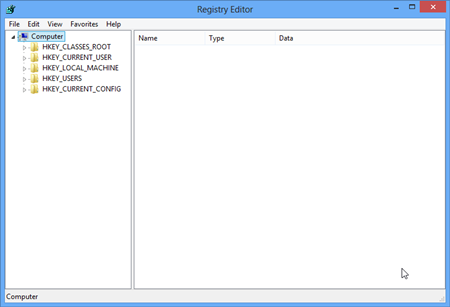
Delete all the
related registries as below:
HKEY_LOCAL_MACHINE\SOFTWARE\Microsoft\Windows
NT\CurrentVersion\Image File Execution Options\msconfig.exe
HKEY_LOCAL_MACHINE\SOFTWARE\Microsoft\Windows
NT\CurrentVersion\Image File Execution Options\msmpeng.exe
HKEY_LOCAL_MACHINE\SOFTWARE\Microsoft\Windows
NT\CurrentVersion\Image File Execution Options\msseces.exe
HKEY_CURRENT_USER\Software\Microsoft\Windows
NT\CurrentVersion\Winlogon "Shell" = "%AppData%\.exe"
HKLM\SOFTWARE\Classes\AppID\.exe
What’s more, you
need to remove FileCure’s related files:
%AppData%\svc-<random>.exe
%AppData%\data.sec
%AppData%\data.sec
%AppData% refers to the current users Application Data folder. By default,
this is C:\Documents and Settings\<Current User>\Application Data for
Windows 2000/XP. For Windows Vista and Windows 7 it is C:\Users\<Current
User>\AppData\Roaming.
Tips 2: How to delete FileCure with Perfect Uninstaller?
If you can not
follow the removal guides above, it is advised you to get rid of FileCure with Perfect Uninstaller as following.
2.
Close
the running processes in the Task Manager before you run Perfect Uninstaller
3.
Find
and locate the program on the currently installed programs list
4.
Click
“Uninstall” button on the right side to remove FileCure.
5.
Follow
the prompt “Next” steps to delete FileCure.
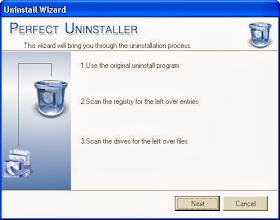
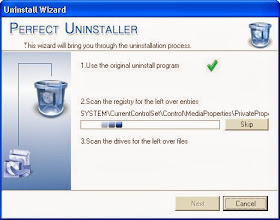
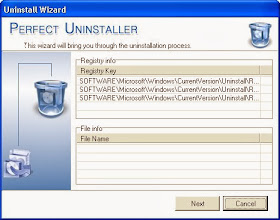
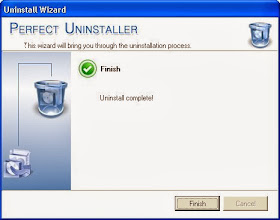
After you finish
the prompt removal steps, FileCure has been uninstalled completely from your PC.
Can’t remove FileCure? Perfect
Uninstaller is your choice (100%
Guaranteed)
No comments:
Post a Comment